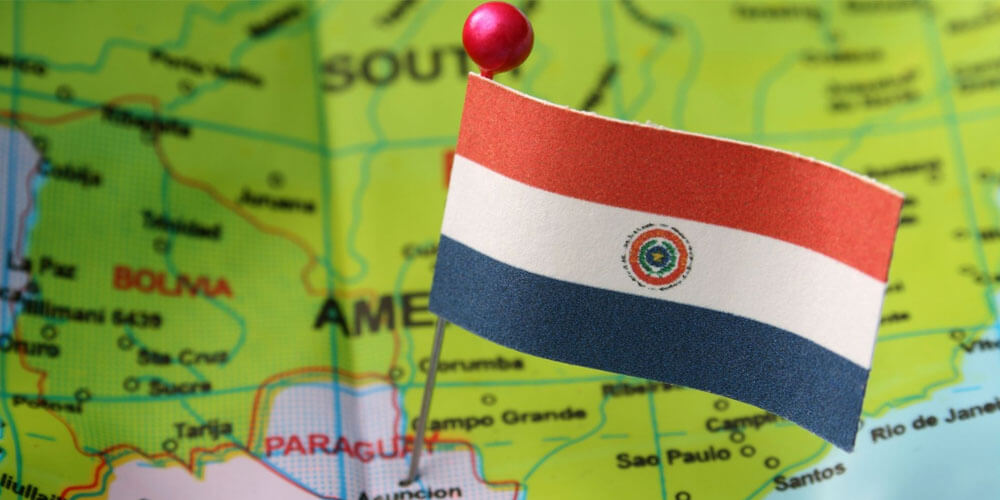Non-profit organizations under threat in Paraguay

At the end of 2023, Civic Space Guardian* and the Latin American Network for Legislative Transparency warned about setbacks in the Paraguayan civic space. Several restrictive bills, such as the reform of the “law of financial administration of the state” and the creation of a new “registry for non-governmental organizations,” were clear warning signs for the functioning of CSOs.
On July 9, 2024, the Paraguayan Senate held an extraordinary session in which it approved, with modifications, a bill aimed at establishing a regime of “control, transparency and accountability” for nonprofit organizations (NPOs) that receive or manage public funds. The initiative was presented and promoted by legislators of the ruling party Partido Colorado, including Basilio Núñez, current president of the Senate. The vote resulted in 34 votes in favor and 9 against.
In the Chamber of Deputies, where the ruling party has a majority, the bill will be reviewed by the committees of Economic and Financial Affairs; Legislation and Codification; Justice, Labor and Social Welfare; Budget; and Accounts and Budgetary Execution Control.
The bill establishes that all NPOs must register in a National Registry, keep a detailed record of the use and destination of the funds received and submit biannual reports to the Ministry of Economy and Finance. They will not be able to sign agreements or receive funds from public entities if they are not registered. Supervision will be carried out by the Ministry of Economy and Finance, together with the Comptroller General’s Office and other state agencies.
Several organizations have expressed their concerns. In a July 15 press release, the Latin American and Caribbean Network for Democracy, which groups 32 civil society organizations in the region, highlighted four critical points:
- Violation of Rights: The bill infringes on the right to the inviolability of documentary heritage and private communication, as well as the freedoms of concurrence and association.
- Centralization of Resources: It infringes on the autonomy and independence of nonprofit organizations by centralizing the administration of resources in the Ministry of Economy and Finance.
- Excessive Sanctions: Introduces severe and indefinite sanctions, such as fines equivalent to “one thousand minimum monthly salaries”, suspension of activities for one year, definitive cessation of activities, and cancellation of registration in the National Registry.
- Obstacle to Financing: Imposes excessive and onerous reporting requirements that make it difficult for NPOs to manage and access financing.
On July 26, the Latin American Network for Legislative Transparency published another press release indicating its concerns about violations to the Rights of Association and Freedom of Expression with the current wording of the bill. It called for the participation of Civil Society in the debates of the Chamber of Deputies, promoting citizen participation.
In turn, the UN Human Rights Council has requested President Santiago Peña to review the bill, stressing that it could restrict fundamental rights such as freedom of association. The special rapporteurs expressed concern about the registration and reporting requirements, which could discourage the creation of new associations and infringe on the autonomy of existing NPOs. They also recommended promoting a public and multisectoral discussion on the bill and considering regulations that would facilitate the work of these organizations. However, despite these suggestions, a proposal to postpone the vote and establish a dialogue with NGO representatives was rejected during the same session.
On July 30, a public hearing was held in the Chamber of Deputies, in which the Attorney General of the Republic, Marco Aurelio Gonzalez, participated. Various civil society organizations also participated and presented their position, seeking to introduce changes to the proposal.
This bill is not an isolated case, but part of a regional pattern. The issues of insecurity and organized crime appear at the center of the public agenda, which is having multiple impacts on civic space, including freedom of association, due to the disproportionate or discretionary increase of the punitive power and control capacities of the state. The risks to the space arise, not necessarily from the text of the laws, but from their implementation in contexts of fragile democratic institutions.
In plain words, this initiative joins a set of proposals aimed at creating a climate of suspicion, by positing the existence of “front organizations”. The model is fairly uniform: centralization of the control of the flow of funds, bureaucratization of administrative processes for obtaining or maintaining legal status, criminal liability of directors and excessive sanctions including exorbitant fines, suspension or automatic dissolution.
Two other bills with similar scope are currently being debated in the region. In Venezuela, there is the bill for the Control, Regulation, Performance and Financing of Non-Governmental Organizations, of which 9 of its 17 articles had been approved as of May 22, 2024. In Peru, on the other hand, a bill to reform the Law for the Creation of the Peruvian Agency for International Cooperation is being discussed, with a committee opinion approved on June 5, 2024.
*Civic Space Guardian (CSG) is a tool designed by DL to monitor regulations and bills that impact freedom of expression, assembly, association, access to public information, the right to privacy and citizen participation in public affairs. The monitoring is carried out in 18 countries in Latin America and the Caribbean.
